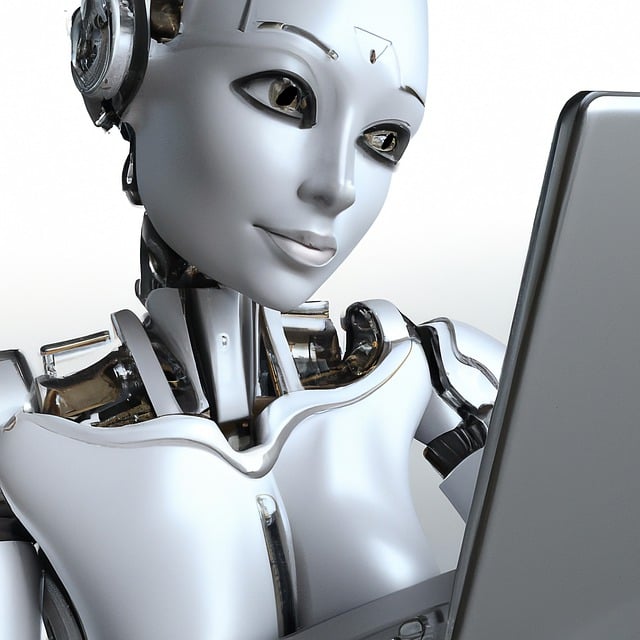Section 1: Introduction to AI and Its Impact on Technology
Artificial Intelligence (AI) has been a buzzword in the tech world for quite some time now. From self-driving cars to virtual assistants, AI has made its way into our daily lives and has become an integral part of our society. But what exactly is AI and how is it revolutionizing technology and business efficiency? In simple terms, AI is the simulation of human intelligence in machines that are programmed to think and act like humans. It involves the use of algorithms and data to enable machines to learn from experience, make decisions, and perform tasks without explicit instructions. This article will delve into the various ways AI is transforming technology and businesses, and how it has the potential to unlock endless possibilities for the future.
Section 2: Enhancing Efficiency and Productivity in Business Operations
One of the most significant impacts of AI on businesses is its ability to enhance efficiency and productivity. With the help of AI-powered tools and systems, businesses can automate and streamline various processes, reducing the need for manual labor and minimizing the chances of human error. This not only saves time and resources but also increases accuracy and precision. For instance, AI-powered chatbots can handle customer queries and provide real-time assistance, freeing up human employees to focus on more complex tasks. This not only improves the customer experience but also increases the efficiency of the customer service department. Similarly, AI-powered software can analyze vast amounts of data and provide valuable insights, enabling businesses to make data-driven decisions and improve their operations.
Another way AI is enhancing efficiency in businesses is through the use of predictive analytics. By analyzing past data and patterns, AI algorithms can predict future trends and behaviors, helping businesses make accurate forecasts and plan accordingly. This is particularly beneficial in supply chain management, where AI can help optimize inventory levels, reduce wastage, and improve delivery times. It can also help businesses anticipate demand and adjust production accordingly, reducing the risk of overstocking or stock shortages. This not only improves efficiency but also saves costs and improves customer satisfaction.
Section 3: Revolutionizing Customer Experience with AI
In today’s fast-paced world, customers expect quick and personalized service from businesses. This is where AI comes into play, revolutionizing the customer experience. AI-powered tools and systems can analyze customer data and behavior to tailor personalized recommendations, offers, and advertisements. This not only improves customer satisfaction but also increases the chances of making a sale. For instance, e-commerce giant Amazon uses AI algorithms to analyze customer data and recommend products based on their browsing and purchase history. This has significantly increased their sales and customer retention rates.
Moreover, AI is also revolutionizing the way businesses interact with their customers. Virtual assistants, such as Apple’s Siri and Amazon’s Alexa, are becoming increasingly popular, providing customers with a more convenient and personalized experience. These virtual assistants can understand natural language and perform tasks such as setting reminders, booking appointments, and even making purchases. This not only saves time for customers but also reduces the workload for businesses. Additionally, AI-powered chatbots are also being used by businesses to handle customer queries and provide 24/7 support. This not only improves efficiency but also saves costs for businesses by reducing the need for human customer service representatives.
Section 4: Unlocking Endless Possibilities for the Future
The potential of AI is not limited to just enhancing efficiency and improving customer experience. It has the power to unlock endless possibilities for the future. With the rapid advancements in AI technology, we are witnessing the development of self-driving cars, voice-controlled homes, and even robots that can perform human-like tasks. These advancements have the potential to revolutionize various industries, such as transportation, healthcare, and manufacturing. For instance, self-driving cars can significantly reduce the number of accidents caused by human error, making roads safer for everyone. In healthcare, AI-powered tools can analyze medical data and assist doctors in diagnosing diseases and developing treatment plans. This not only improves the accuracy of diagnoses but also saves time and resources for both doctors and patients.
Furthermore, AI has the potential to create new job opportunities and transform the way we work. While some fear that AI will replace human jobs, it is more likely to create new roles that require human-AI collaboration. For instance, the demand for AI engineers, data scientists, and machine learning experts is on the rise, and these jobs require a combination of technical and human skills. AI can also automate mundane and repetitive tasks, freeing up humans to focus on more creative and complex tasks. This not only improves job satisfaction but also increases productivity and innovation.
Conclusion:
In conclusion, AI is revolutionizing technology and business efficiency in more ways than we can imagine. With its ability to automate processes, analyze data, and provide personalized experiences, AI has become a game-changer for businesses. It has the potential to increase efficiency, improve customer experience, and unlock endless possibilities for the future. As AI continues to evolve and advance, it is essential for businesses to embrace this technology and leverage its potential to stay ahead in the competitive market. The future is indeed exciting and full of opportunities with AI leading the way.











